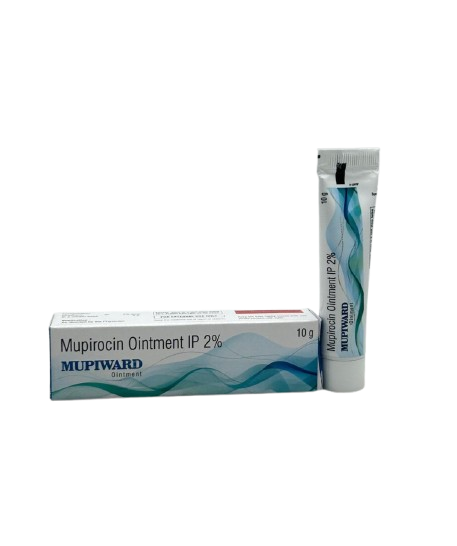
Clobetasol Propionate, Miconazole Nitrate & Neomycin Sulphate Cream
Clobetasol Propionate, Miconazole Nitrate & Neomycin Sulphate Cream
Clobetasol Propionate, Miconazole Nitrate & Neomycin Sulphate Cream is a combination topical medication used to treat a variety of skin infections and inflammatory conditions.
Clobetasol Propionate (a potent corticosteroid)
Purpose: Reduces inflammation, redness, itching, and swelling.
Mechanism: Suppresses the immune response and decreases production of substances that trigger inflammation.
2-Miconazole Nitrate (an antifungal)
Purpose: Treats fungal infections like ringworm, athlete's foot, and candidiasis.
Mechanism: Inhibits the synthesis of ergosterol, an essential component of fungal cell membranes, causing fungal cell death.
3-Neomycin Sulphate (an antibiotic)
Purpose: Prevents or treats secondary bacterial infections.
Mechanism: Interferes with bacterial protein synthesis, stopping bacterial growth.
This cream is commonly used to treat:
Fungal infections with a component of bacterial infection and inflammation
Tinea infections (e.g., athlete's foot, jock itch, ringworm)
Intertrigo (rash in skin folds)
Infected eczema or dermatitis
Candidiasis (yeast infections of the skin)
Long-term use can cause:
Skin thinning (atrophy)
Stretch marks (striae)
Steroid-induced acne
Hypopigmentation
Risk of antibiotic resistance with prolonged neomycin use.
Not recommended for children under 12 years without medical advice.
Avoid use near the eyes, genitals, and mucous membranes.
May worsen undiagnosed skin conditions or mask symptoms.
Common:
Burning, stinging, or redness at the application siteDryness or irritation
Less common or serious:
Skin thinning
Allergic reactions (rash, swelling)
Superinfection (fungal or bacterial overgrowth)
Adrenal suppression with prolonged or widespread use (rare but serious)
Use the lowest effective dose for the shortest possible duration.
Monitor liver and kidney function during prolonged use.
Use cautiously in elderly patients and those with cardiovascular risk factors.
Not recommended for self-injection; should be administered by a healthcare professional.
Store below 25°C
Protect from light and moisture
Do not freeze
Monitoring
Blood pressure (especially in hypertensive patients)
Kidney and liver function (with long-term use)
Signs of GI bleeding or cardiovascular events
Advantages vs. Traditional NSAIDs
Lower risk of gastric ulcers and bleeding
Once-daily dosing
Good for long-term arthritis management in select patients
Disadvantages
Higher cost
Increased cardiovascular risk compared to non-selective NSAIDs
Not suitable for patients with heart disease
Storage
Store at room temperature (15–30°C), away from moisture and heat:
Keep out of reach of children
Important Notes
Use lowest effective dose for the shortest possible duration
Not for use as a first-line analgesic in general pain or fever
Always take under medical advice
